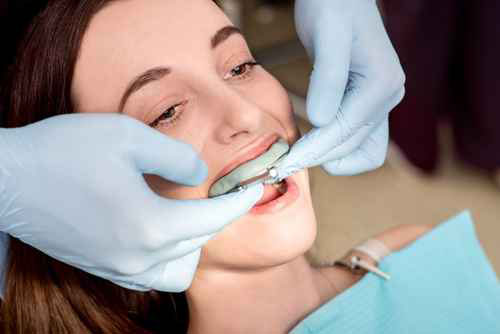Have you ever awakened yourself in the middle of the night with a loud clenching or grinding sound? If so, you may want to speak with your dentist regarding a condition called bruxism.
What is bruxism?
Bruxism is a habit of grinding or clenching teeth. Clenching means you tightly hold your top and bottom teeth together. Grinding occurs when you slide your teeth back and forth over each other.
There are a few symptoms that are characteristic of bruxism. People who suffer from bruxism may or may not experience the following:
• Headache
• Sore jaw
• Grinding and clenching teeth
• Frequent toothaches
• Facial pain
• Worn or fractured tooth enamel
• Loose teeth
• Earache
• Insomnia
How do you develop bruxism?
Bruxism can develop at any age, and children as well as adults can have the habit of grinding their teeth. Although the causes of bruxism are not certain, several factors may be involved. Stressful situations, sleep disorders, an abnormal bite, and crooked or missing teeth may be responsible. Your dentist can diagnose bruxism by looking for unusual wear spots on your teeth. Regular dental checkups are important to detect damage in the early stages. Your dentist can treat irregular wear on teeth and facial pain that may result from bruxism.
How is bruxism treated?
Depending on what is causing your bruxism, your dentist may recommend different treatment options. If stress is the cause of bruxism, your dentist may recommend that you find ways to relax. Reading a book, listening to quiet music, taking a walk or a warm bath may help. You also may be asked to apply a warm washcloth of compress to the side of your face to help the muscles in your face relax. Practicing relaxation techniques may also be helpful. If you have difficulty handling stress, counseling may point to effective ways for dealing with stressful situations.
Your dentist may also suggest a night-guard to wear while you sleep. Night-guards are helpful for bruxism caused by sleep disorders, crooked or missing teeth or stress. Custom-made by your dentist from soft material to fit your teeth, the night-guard slips over the upper and lower teeth and prevents contact between them. It helps relieve some of the pressure of grinding or clenching, which can damage delicate jaw points.
Treatment for those with an abnormal bite may involve reducing the “high spots” on one or more teeth. For serious cases, your dentist may suggest reshaping or reconstructing the biting surfaces with inlays or crowns. The pain from bruxism can be relieved by paying attention to the symptoms, frequent dental visits and good communication with your dentist.










